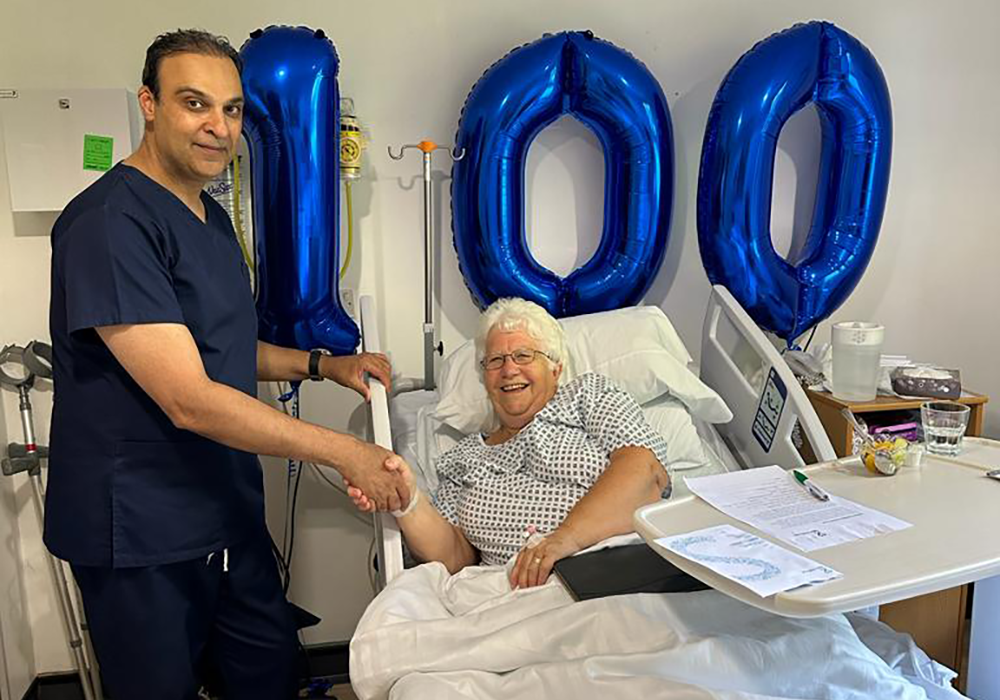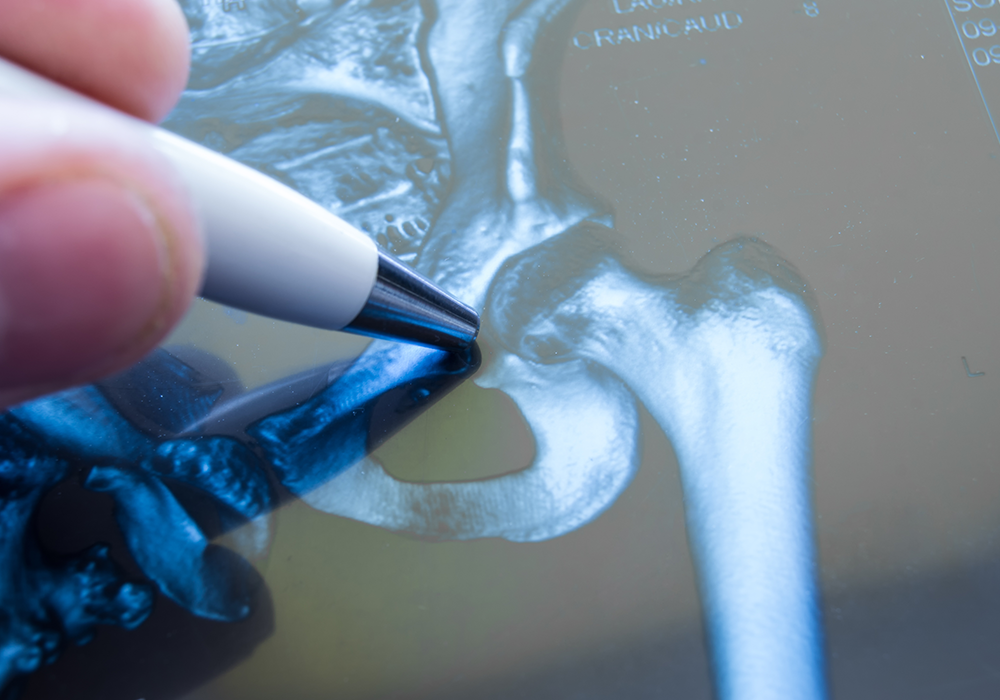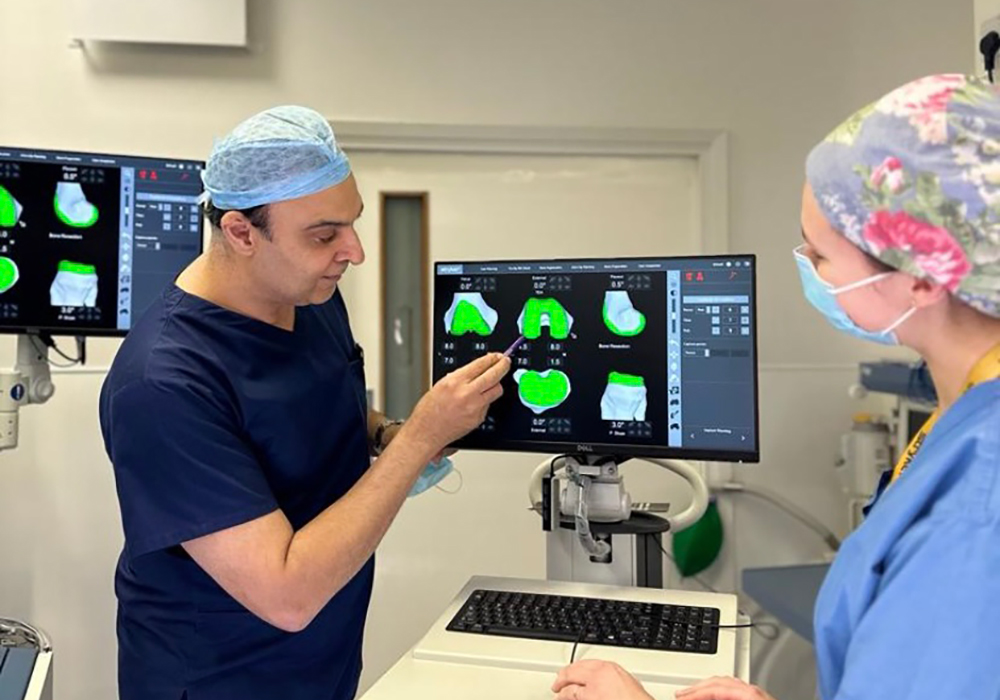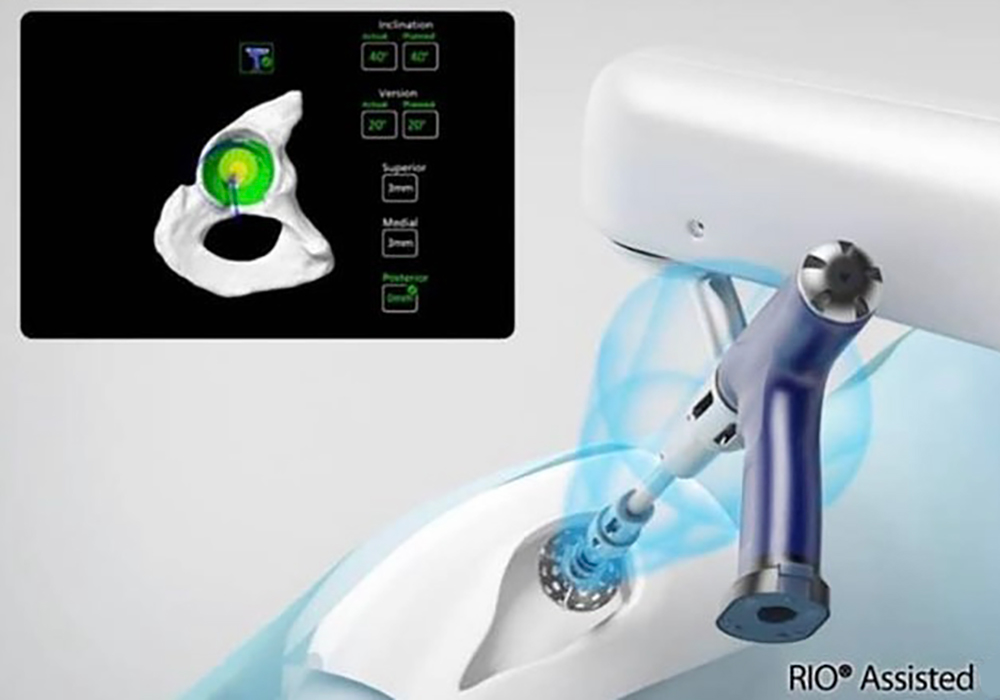Philosophy
At the Worcestershire Knee and Hip Clinic, all of my patients receive as minimally invasive surgery (MIS) as possible, emphasizing precise component positioning and soft tissue balance, meticulous soft tissue handling and closure. This approach yields the best, most predictable outcomes; less soft tissue trauma, less pain and faster recovery.
The data backs this up as I have performed more than 4,000 joint replacements. Performance data consistently demonstrates low complications rates, infection rates and readmission rates than peer orthopaedic surgeons as well as very high success and patient satisfaction scores.
At the Worcestershire Knee and Hip Clinic I help patients make well-informed decisions about their own health care. In my experience, a well-informed patient not only has a faster, smoother recovery but also a better experience, which contributes to a better outcome. Our whole team is involved in every patient’s care, from initial diagnosis through to rehabilitation.
Diagnosis
Hip replacement surgery and knee replacement surgery have proven to be two of the most successful surgeries ever developed, predictably relieving pain and improving quality of life. Total knee replacement is the most common joint replacement procedure following by total hip replacements.
Every patient is under my direct care the consultation begins with a consultation which involves personal history, a thorough physical examination and state-of-the-art imaging. Based on findings, I will make my recommendations for treatment.
For patients who do not require surgery, I may recommend alternatives such as specialized injections or arthroscopy. These advanced techniques can delay (and sometimes eliminate) the need for an artificial joint.
For patients who do require surgery, I will recommend the type of replacement and implant that is best suited to each person’s medical and lifestyle needs. I will carefully explain the procedure to the patient and often to the family and medical team. In the end, it is the patient who must make the final decision to proceed. In my experience, most patients hit a threshold of frustration and pain and know when they are “ready.”
If surgery is indicated, my Nurse will meet/speak to the patient to review additional information. Many patients decide to schedule surgery during that initial visit, where others prefer to go home and think about it.
Minimally Invasive Surgery
Minimally invasive surgery (MIS) represents a trend toward smaller incisions and/or less underlying soft tissue dissection. Scientists have developed new techniques and instruments and even new prostheses to accommodate smaller incisions. Patients are asking for it.
But is MIS always better?
The answer is, not always. This is what the data shows.
Well-designed studies published in peer-reviewed publications are not all reporting that minimally invasive surgery results in better outcomes, as measured by less soft tissue trauma, less blood loss, or a faster recovery. Accurate component positioning in total hip and total knee surgery with MIS is possible with the use of Mako Robotic assisted Surgery.
We think the trend toward smaller incisions and less underlying soft tissue dissection is a good one, but it is not one-size-fits-all. Here at the Worcestershire Knee and Hip Clinic, all patients receive as minimally invasive surgery (MIS) as possible. Our emphasis is on precise component positioning, meticulous soft tissue handling and closure. This results in less soft tissue trauma and as rapid a recovery as possible. Our goal is to relieve pain, restore the ability to walk normally and be active, and create a construct that lasts many, many years.
Choose a surgeon based on reputation, experience, and the feeling of trust and personal connection you get. Though it is important to discuss new procedures and mako robotic assisted technology, in the end, you need to trust that the surgeon you have chosen will choose what is best for you.
Pain Management
One of the main reasons that our patients recover so much faster and return to full activities so much sooner than even several years ago is our comprehensive approach to preventing and preempting pain. Our goal is to stay ahead of the pain curve. This begins in the preoperative holding area prior to your surgery.
We use medication to prevent and down modulate pain as well as to pre-empt potential post-operative complications, such as nausea or vomiting. Our protocol includes the type of anesthesia you will be administered, injecting the tissues around the surgical reconstruction with a combination of different meds prior to incision closure, and giving you different medicines from different families of medicines, other than just narcotics, on a specific schedule once your surgery is complete.
To book a consultation or for further information, contact:
Mr Nadim Aslam, Orthopaedic Robotic Surgeon, of the Worcestershire Knee & Hip Clinic
✉ [email protected]
☏ 01905 362003






